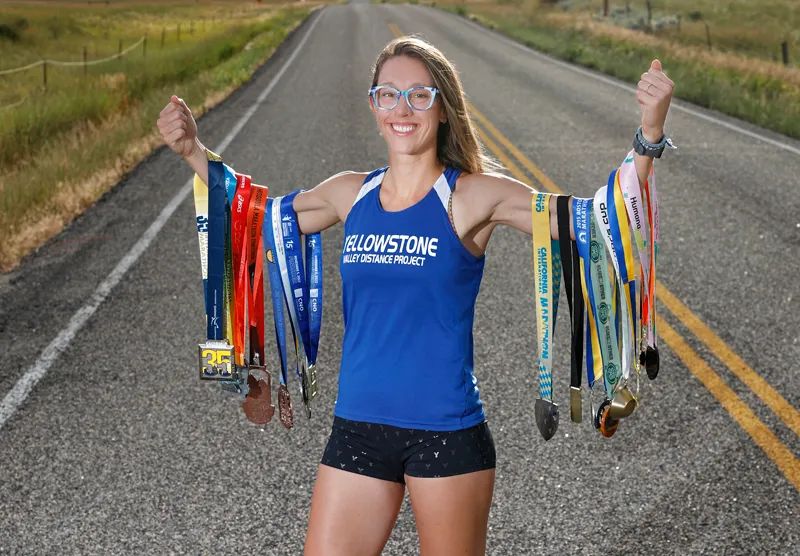
Hitting Her Stride
Decorated marathon runner has her sights set on the Olympic Trials
With every mile Mary Felig runs, the time 2:37 is on her mind. Two hours and 37 minutes is the Olympic Trials Qualifying Standard for the women’s marathon. She’s been chasing that time for years, and it’s finally within her reach.
“It’s a great marker to have out there in front of you,” Mary says. “It makes you think, ‘I can do big things.’”
If everything comes together this fall, there’s a good chance she’ll reach her goal at the McKirdy Micro Marathon in New York, set for Oct. 14. The McKirdy, with its blazing fast course and exceptional runner support, is geared toward elite marathoners like Mary who are looking to run their fastest times.
Mary, 32, is one of the fastest women in Montana, and among the fastest female marathoners in the nation. It’s taken 10 years of hard work and thousands of miles in her sneakers to reach that competitive level. For years she strived to run a marathon in three hours, and when she broke three hours a few years back, she hit her stride and has been shaving time off each race since then.
“Something changed in my mindset,” she says.
It was then that she set her sights on 2 hours 45 minutes, which at that time was the Olympic Trials Qualifying Standard. It was well within Mary’s reach when, in 2021, the Olympic committee changed the time to 2:37 for the 2024 Olympics. It was a massive and unexpected change.
“It was a very grounding moment,” she says. “It felt so attainable months ago.”
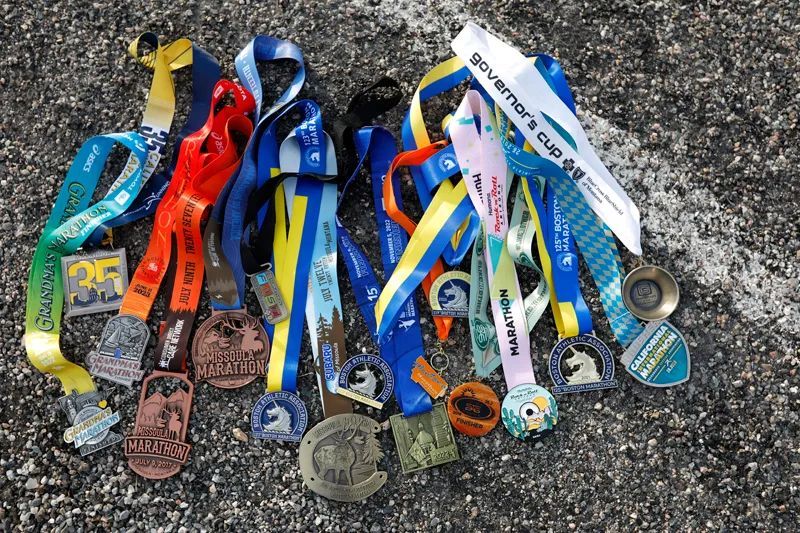
Had it not changed, Mary would have easily met the qualifying time. In fact, she’s come in under that old qualifying time twice since the change. Even though her goal has changed, she’s approaching it with the same tenacity.
“It’s really a good thing. It’s a predictor of the health of women’s sports in our country,” Mary says.
Mary’s sweet spot is two marathons a year, one in the spring and one in the fall. She runs lots of other races in between. Earlier this year she took first overall in the Queen Bee half marathon and set the course record. Then she did the same thing at the Run for Heaven's Sake half marathon, and she set a new Women's Run record for the five mile, beating Karen Sanford Gall's previous record. She also took third last year in the Montana Mile during the Big Sky State Games and placed seventh this year.
“I think putting yourself out there and doing races that are not your thing and are out of your comfort zone makes you a better runner,” she says.
Mary grew up on her family’s ranch in the wide-open country between Ekalaka and Broadus. She went to a one-room school from kindergarten through eighth grade, and when she was old enough for after-school activities, her mother would drive her to Broadus for activities including track practice and track meets.
“I’m so grateful for that because running has become such a long-lasting part of my life,” Mary says.
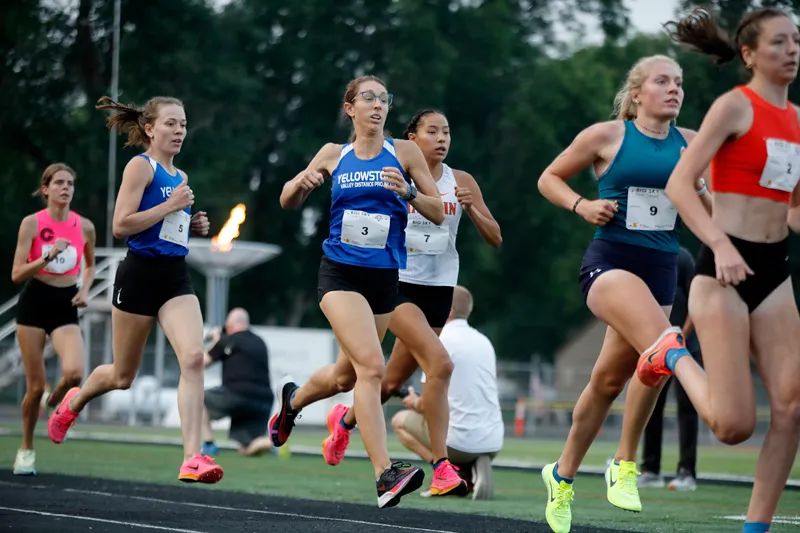
Mary fell in love with running in the seventh grade, and after middle school sports, she competed in track and field at Broadus High School. Her best events were longer distances, and she eventually earned a track and field scholarship to Montana State University Billings. It was during college that she ran her first marathon. Her goal was just to finish. She finished. Her time wasn’t great, but the experience ignited a passion for marathons. Since then, Mary has run 18 of them.
Distance running, especially marathons, are as much a psychological experience as a physical experience. Runners have a lot of time alone with their thoughts, and each race poses different challenges on both physical and mental levels. Mary takes each race one mile at a time.
“If I’m going into a race, I’m taking my time before I start to reflect and ground myself and remind myself how fortunate I am to be at this point in the sport,” she says. “I always want to finish with gratitude.”
It’s a combination of years of training and a maturity that helps elite marathoners master the psychological and emotional aspects of running. Mary has hit that intersection and is at the top of her game.
“I feel fantastic. If you watch elite runners, distance runners are crushing it in their 30s,” Mary says. “I’m at a point in my life where I’m a lot more comfortable with myself and that translates to my running and being able to take risks.”
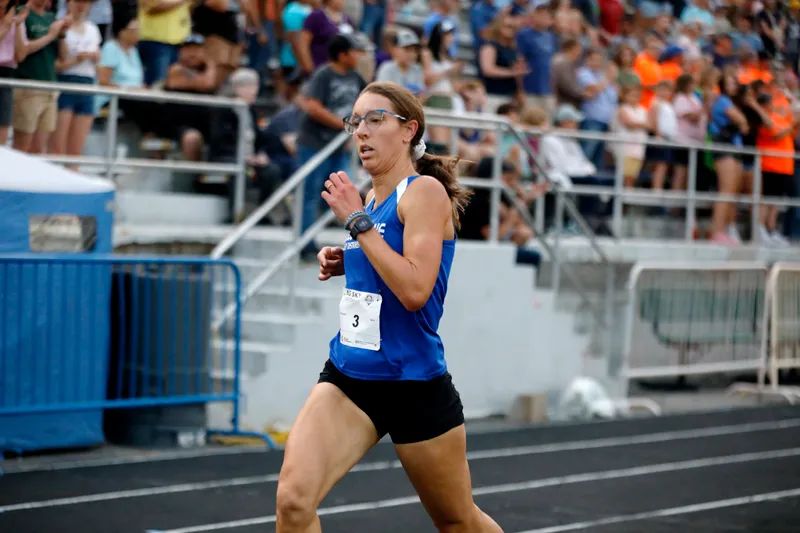
Becoming accustomed to big races has also come with a learning curve. Mary has run the Boston Marathon four times. Her first time was her worst. More than 30,000 athletes run the Boston Marathon, and the whole city turns out to line the course. Looking back, she admits that the experience was overwhelming. Her best finish was in 2021 when she placed 75th in the women’s division.
“Each time I did it after that I learned something more about the course and the race and I was able to do it smarter and faster,” Mary says.
One of the most meaningful races for Mary was Boston 2019, when a large contingency of women from Billings went.
“When you have other people with you, you build each other up and you’re all better for it,” she says.
Mary teaches physics and AP physics at Skyview High and is passing on her love for running as the head coach for the Skyview High cross country team and assistant track coach. She spends most mornings all summer and fall running with the teens. She loves their enthusiasm as they explore distance running. More than anything she wants them to love running for life. Her words of encouragement to them echo in her ears as she races.
“If I’m feeling those feelings of self-doubt I think, what do I tell the kids?” Mary says.
This last year, the Skyview cross country team took first in the Billings City Meet for the first time in school history, and placed sixth at the Montana State Meet — beating both Senior and West, which was also a first in school history.
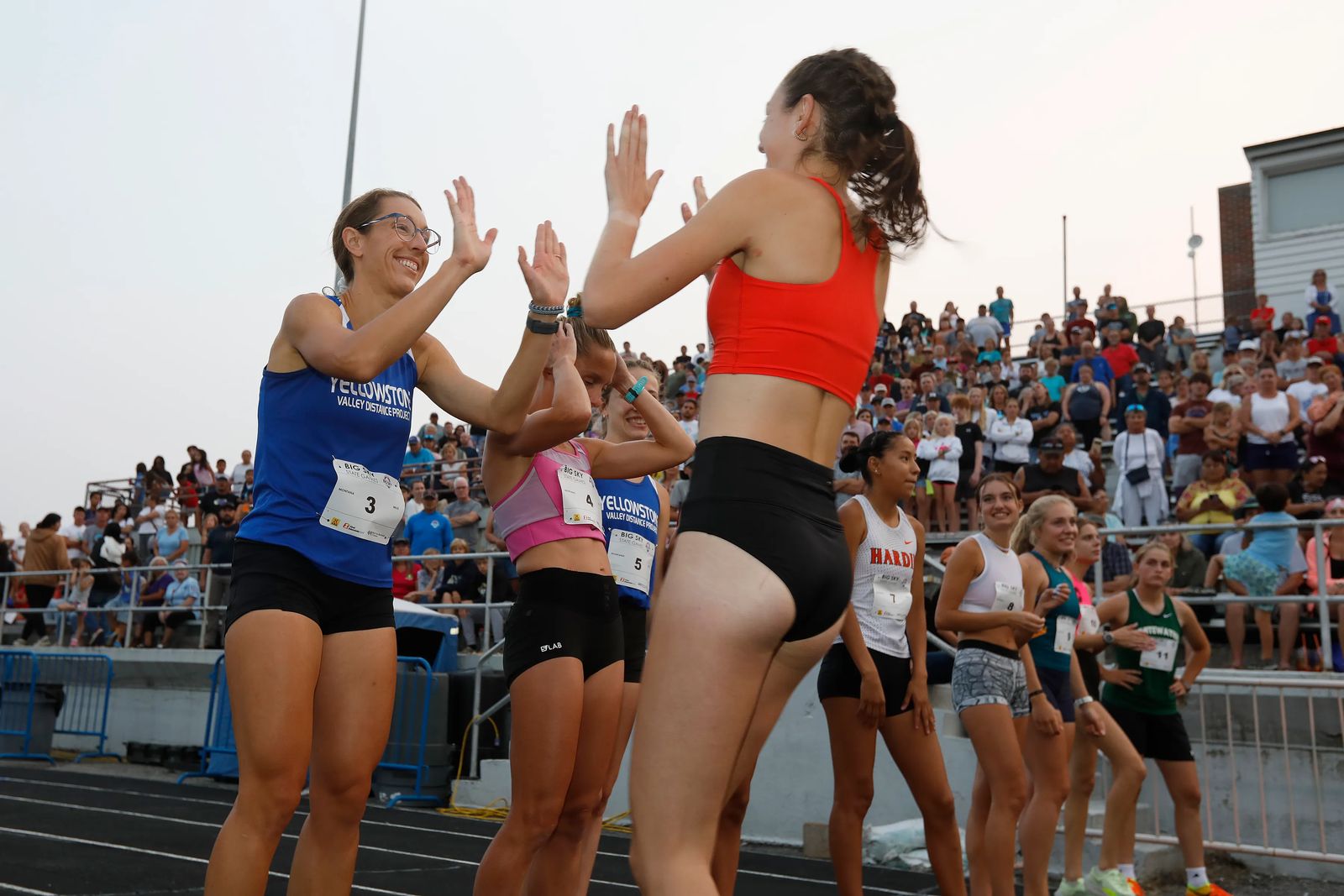
"When I was a part of the Skyview cross country team, having Mary as a coach and a role model was one of the best things that could have happened to me as a young woman,” says former student athlete Hannah Hirschi. “She helped me push past my limits in running and achieve things I didn’t think were possible. Seeing her passion for running and watching her achieve so many things in the sport inspired me to continue running after high school. Through her coaching, she helps young women believe they can do great things not only in sports but in every aspect of their lives.”
Mary keeps her running schedule flexible, running most days, and once a week she does a long run of 18 to 22 miles. She also does speed interval workouts once a week. With every stride she’s aiming for 2:37.
“I’ve dealt with all the emotions and highs and lows of pursuing this goal,” she says. “I am ready.”











